DS Automobiles DS 3 vs VW ID.3 - Differences and prices compared
Compare performance (156 HP vs 326 HP), boot space and price (28400 £ vs 28600 £ ) at a glance. Find out which car is the better choice for you – DS Automobiles DS 3 or VW ID.3?
Costs and Efficiency:
Price and efficiency are key factors when choosing a car – and this is often where the real differences emerge.
DS Automobiles DS 3 has a minimal advantage in terms of price – it starts at 28400 £ , while the VW ID.3 costs 28600 £ . That’s a price difference of around 120 £.
In terms of energy consumption, the advantage goes to the VW ID.3: with 14.50 kWh per 100 km, it’s barely noticeable more efficient than the DS Automobiles DS 3 with 15.50 kWh. That’s a difference of about 1 kWh.
As for electric range, the VW ID.3 performs clearly perceptible better – achieving up to 605 km, about 205 km more than the DS Automobiles DS 3.
Engine and Performance:
Under the bonnet, it becomes clear which model is tuned for sportiness and which one takes the lead when you hit the accelerator.
When it comes to engine power, the VW ID.3 has a significantly edge – offering 326 HP compared to 156 HP. That’s roughly 170 HP more horsepower.
In acceleration from 0 to 100 km/h, the VW ID.3 is significantly quicker – completing the sprint in 5.70 s, while the DS Automobiles DS 3 takes 9.10 s. That’s about 3.40 s faster.
In terms of top speed, the VW ID.3 performs hardly perceptible better – reaching 200 km/h, while the DS Automobiles DS 3 tops out at 196 km/h. The difference is around 4 km/h.
There’s also a difference in torque: VW ID.3 pulls significantly stronger with 545 Nm compared to 260 Nm. That’s about 285 Nm difference.
Space and Everyday Use:
Cabin size, boot volume and payload all play a role in everyday practicality. Here, comfort and flexibility make the difference.
Both vehicles offer seating for 5 people.
In curb weight, DS Automobiles DS 3 is decisively lighter – 1249 kg compared to 1787 kg. The difference is around 538 kg.
In terms of boot space, the VW ID.3 offers barely noticeable more room – 385 L compared to 350 L. That’s a difference of about 35 L.
In maximum load capacity, the VW ID.3 performs somewhat better – up to 1267 L, which is about 217 L more than the DS Automobiles DS 3.
When it comes to payload, VW ID.3 slight takes the win – 473 kg compared to 466 kg. That’s a difference of about 7 kg.
Who wins the race?
The VW ID.3 proves to be outperforms in nearly all aspects and therefore becomes our DriveDuel Champion!
VW ID.3 is the better all-rounder in this comparison.

VW ID.3
Costs and Consumption
View detailed analysis
Engine and Performance
View detailed analysis
Dimensions and Body
View detailed analysis
DS Automobiles DS 3
The DS 3 is a chic, compact premium hatch that stands out with couture styling and an interior that feels more boutique than bargain-bin. It serves up a poised, city-friendly drive with plenty of French flair — ideal for buyers who want personality as much as practicality and don’t mind turning heads at the lights.
details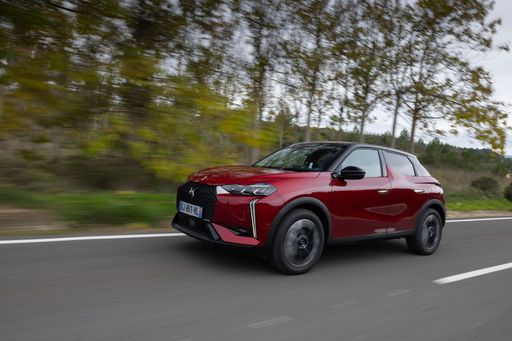
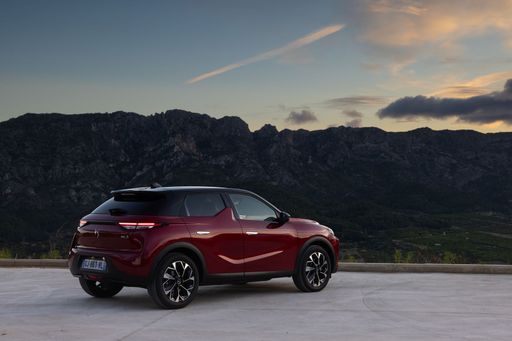
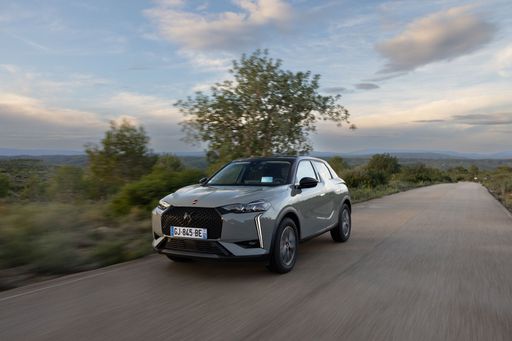
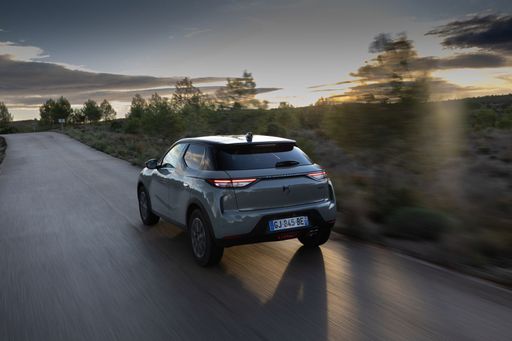
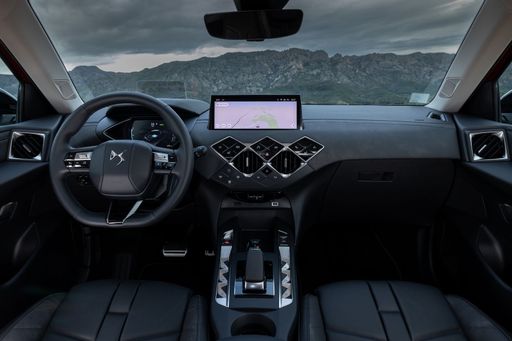
VW ID.3
The VW ID.3 is a crisply styled electric hatch that masks serious practicality behind a friendly, modern face, making city runs and longer trips pleasantly fuss free. For buyers seeking a sensible, well-equipped EV that doesn't take itself too seriously, the ID.3 strikes a neat balance of comfort, tech and everyday usability with a cheeky smile.
details
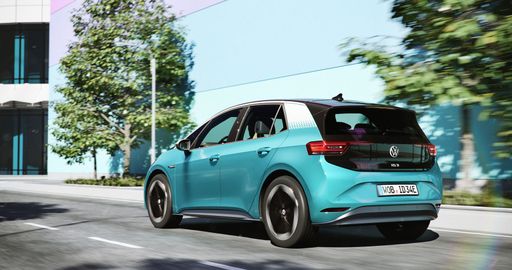
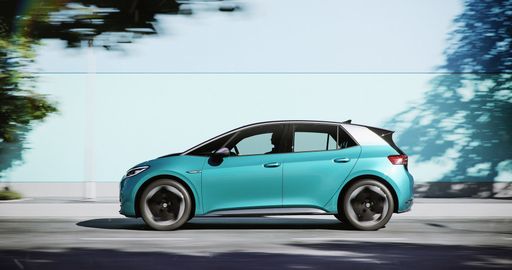
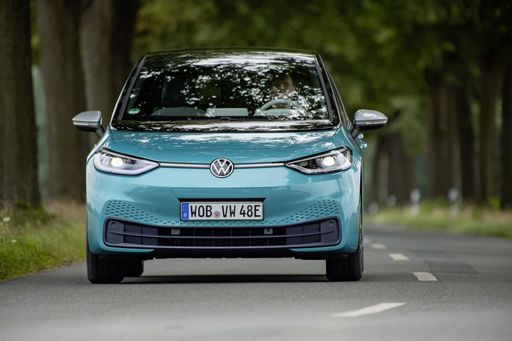
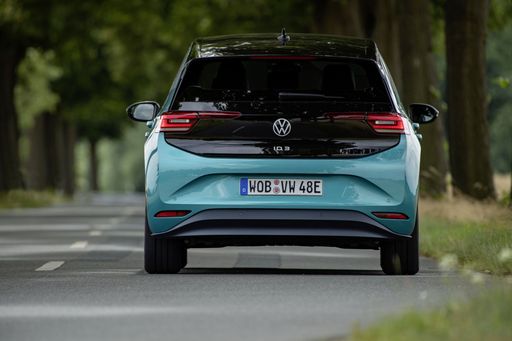
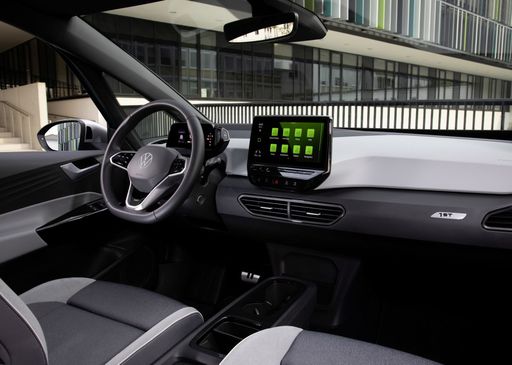

Costs and Consumption |
|
|---|---|
|
Price
28400 - 40500 £
|
Price
28600 - 49300 £
|
|
Consumption L/100km
5 L
|
Consumption L/100km
-
|
|
Consumption kWh/100km
15.50 kWh
|
Consumption kWh/100km
14.5 - 15.8 kWh
|
|
Electric Range
400 km
|
Electric Range
383 - 605 km
|
|
Battery Capacity
51 kWh
|
Battery Capacity
52 - 79 kWh
|
|
co2
0 - 112 g/km
|
co2
0 g/km
|
|
Fuel tank capacity
44 L
|
Fuel tank capacity
-
|
Dimensions and Body |
|
|---|---|
|
Body Type
SUV
|
Body Type
Hatchback
|
|
Seats
5
|
Seats
5
|
|
Doors
5
|
Doors
5
|
|
Curb weight
1249 - 1646 kg
|
Curb weight
1787 - 1993 kg
|
|
Trunk capacity
350 L
|
Trunk capacity
385 L
|
|
Length
4118 mm
|
Length
4264 mm
|
|
Width
1791 mm
|
Width
1809 mm
|
|
Height
1534 mm
|
Height
1564 mm
|
|
Max trunk capacity
1050 L
|
Max trunk capacity
1267 L
|
|
Payload
362 - 466 kg
|
Payload
437 - 473 kg
|
Engine and Performance |
|
|---|---|
|
Engine Type
Electric, Petrol MHEV
|
Engine Type
Electric
|
|
Transmission
Automatic
|
Transmission
Automatic
|
|
Transmission Detail
Reduction Gearbox, Dual-Clutch Automatic
|
Transmission Detail
Reduction Gearbox
|
|
Drive Type
Front-Wheel Drive
|
Drive Type
Rear-Wheel Drive
|
|
Power HP
145 - 156 HP
|
Power HP
170 - 326 HP
|
|
Acceleration 0-100km/h
9.1 - 9.2 s
|
Acceleration 0-100km/h
5.7 - 8.2 s
|
|
Max Speed
150 - 196 km/h
|
Max Speed
160 - 200 km/h
|
|
Torque
230 - 260 Nm
|
Torque
310 - 545 Nm
|
|
Number of Cylinders
3
|
Number of Cylinders
-
|
|
Power kW
107 - 115 kW
|
Power kW
125 - 240 kW
|
|
Engine capacity
1199 cm3
|
Engine capacity
-
|
General |
|
|---|---|
|
Model Year
2024 - 2025
|
Model Year
2024 - 2025
|
|
CO2 Efficiency Class
A, C
|
CO2 Efficiency Class
A
|
|
Brand
DS Automobiles
|
Brand
VW
|
What drive types are available for the DS Automobiles DS 3?
The DS Automobiles DS 3 is offered with Front-Wheel Drive.




